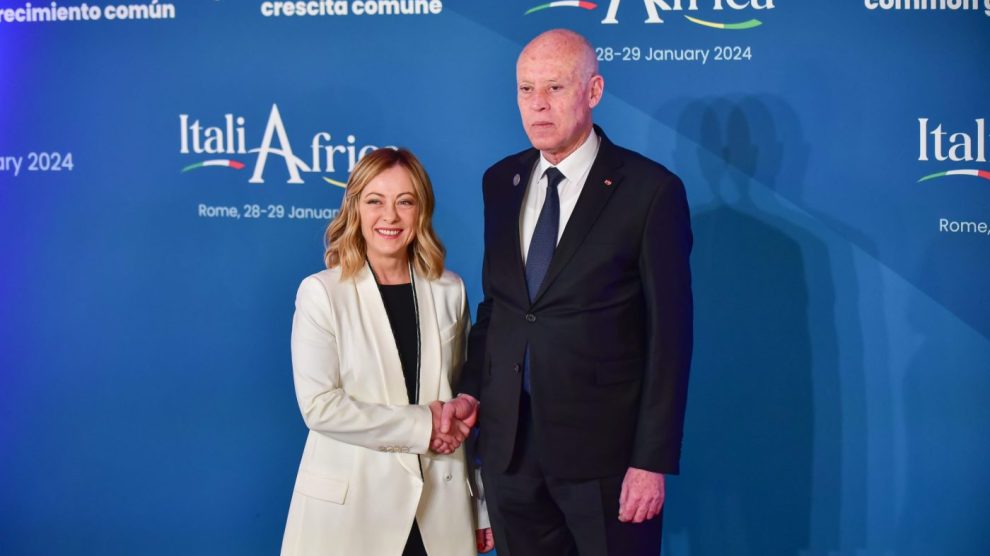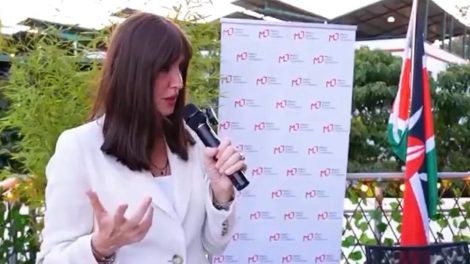Rome and Tunis shake hands – again. Last summer, Italian Prime Minister Giorgia Meloni spearheaded Europe’s complex outreach to Tunisia. On Wednesday, she again made her way to meet President Kais Saied and shake on three distinct deals – direct budget support for renewable energy, a credit line for Tunisian SMEs, and a higher education framework – to consolidate the partnership between the two countries.
- She thanked the Tunisian authorities and President Saied for the joint work to curb irregular migration and human trafficking. “We know that Tunisia cannot become the country of arrival for migrants,” she stressed, promising to “strengthen cooperation” on a dossier that has proven exceptionally delicate for the Tunisian leadership.
- Collaboration with Tunisia is “absolutely a priority for Italy,” she said, noting it’s part of the wider campaign that Rome is carrying out with African nations in the context of the Mattei Plan, geared towards building cooperation “on an equal basis that is finally beneficial to all.”
The wider gaze. This encounter was also a way to underscore Rome’s commitment to the stability of the Mediterranean and Northern Africa, where Tunisia is a “fundamental piece” of the puzzle, noted institutional sources. The contact bolstered Rome’s profile as one of the most effective Western interlocutors in the MENA region at a time when instability is on the rise following Iran’s direct attack against Israel.
Speaking of foreign affairs… The same day, the Group of Seven’s foreign ministers convened in Capri for their three-day meeting, chaired by Italian FM Antonio Tajani. “In an international scenario characterised by extremely high tensions, the Italian-led G-7 has the task of working for peace,” stressed the latter, noting that Rome is “engaged in an all-round effort to achieve this goal.” The agenda will focus on the most pressing issues, starting with the situation in the Middle East – Iran, Gaza, and the Red Sea, where Italy is becoming an increasingly important actor.
- FM Tajani is scheduled to meet the United States Secretary of State, Antony Blinken, for an end-of-day bilateral meeting. The two will focus on de-escalation in the Middle East, a matter the Italian FM had touched upon with his Israeli counterpart on Tuesday.
- Press reports highlight the full convergence between Rome and Washington on this issue.
Bridging the G-7 and Africa. In keeping with the Italian executive’s engagement on the African front, the G-7 ministerial meeting will also feature a session with Mauritania’s Foreign Minister Mohamed Salem Ould Merzoug and the African Union Presidency. It will be geared towards strengthening the G-7 partnership with the continent, a matter that Rome has been discussing in depth with Washington.
Don’t forget Ukraine (and China). Flanked by Ukrainian Foreign Minister Dmytro Kuleba and NATO Secretary General Jens Stoltenberg, G-7 ministers will also discuss the response to the Russian war against Ukraine, as well as stability in the Indo-Pacific and major global issues such as infrastructure connectivity, cybersecurity, AI and disinformation.





